Physics
Sign up for our newsletter
We summarize the week's scientific breakthroughs every Thursday.
-
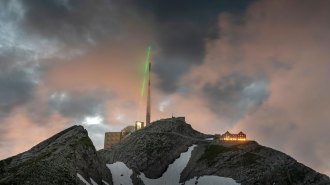 Physics
PhysicsA powerful laser can redirect lightning strikes
In a mountaintop experiment, a laser beamed into the sky created a virtual lightning rod that snagged several bolts before they hit the ground.
-
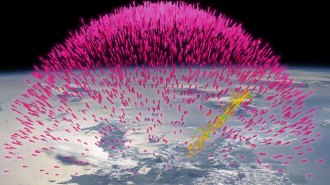 Physics
PhysicsRare ‘dark lightning’ might briefly touch passengers when flying
Gamma-ray blasts from thunderstorms might occasionally zap passing airplanes, briefly exposing passengers to unsafe levels of radiation.
By Nikk Ogasa -
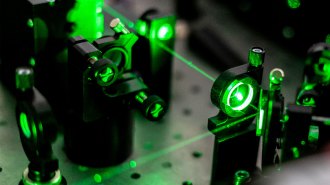 Physics
PhysicsHere’s how to make a fiber-optic cable out of air using a laser
A hollowed-out laser beam heats a tube of air that surrounds cooler air, providing a way to guide light much the way fiber optics do.
-
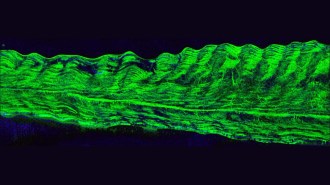 Physics
PhysicsTiny bubbles that make icicles hazy are filled with water, not air
Like tree rings, layers of itty-bitty water pockets also preserve a record of an icicle’s growth.
-
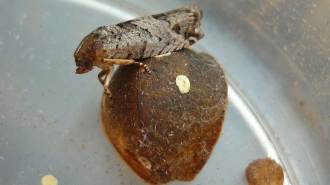 Animals
AnimalsJumping beans’ random strategy always leads to shade — eventually
Jumping beans use randomness to maximize their chances of getting out of the sun’s heat, a new study finds.
-
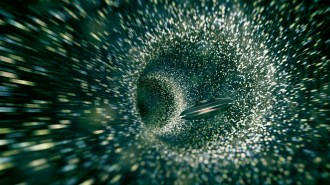 Physics
PhysicsWe could get messages back from spacecraft sent through a wormhole
A simulation of a probe sent to the other side of a wormhole shows it could send speedy messages back before the hole closes and the probe is lost.
-
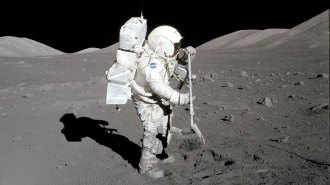 Space
SpaceHumans haven’t set foot on the moon in 50 years. That may soon change
In 1972, the era of crewed missions to the moon came to an end. Fifty years later, a new one has begun.
-
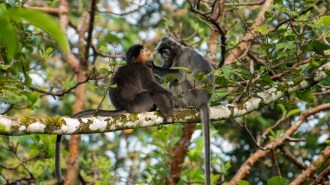 Life
LifeThese science discoveries from 2022 could be game changers
Gophers that farm, the earliest known hominid, a strange hybrid monkey and the W boson's mass are among the findings awaiting more evidence.
-
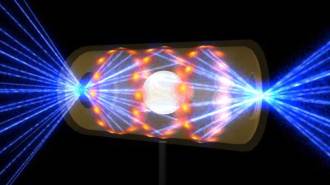 Physics
PhysicsIn a breakthrough experiment, nuclear fusion finally makes more energy than it uses
The sun creates energy through nuclear fusion. Now scientists have too, in a controlled lab experiment, raising hopes for developing clean energy.
-
 Physics
Physics50 years ago, physicists found the speed of light
In the 1970s, scientists set a new maximum speed limit for light. Fifty years later, they continue putting light through its paces.
By Nikk Ogasa -
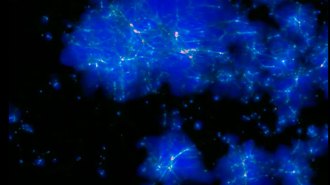 Astronomy
AstronomyA new supercomputer simulation animates the evolution of the universe
The detailed simulation shows the cosmos changing from a dark, featureless gas to a web of stars and galaxies radiating light.
-
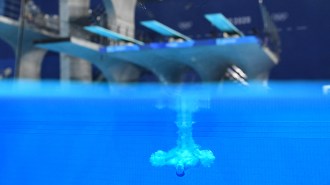 Physics
PhysicsPhysicists explain how to execute a nearly splashless dive
A pocket of air lets elite divers pull off the rip entry, breaking through the water without sending it flying.